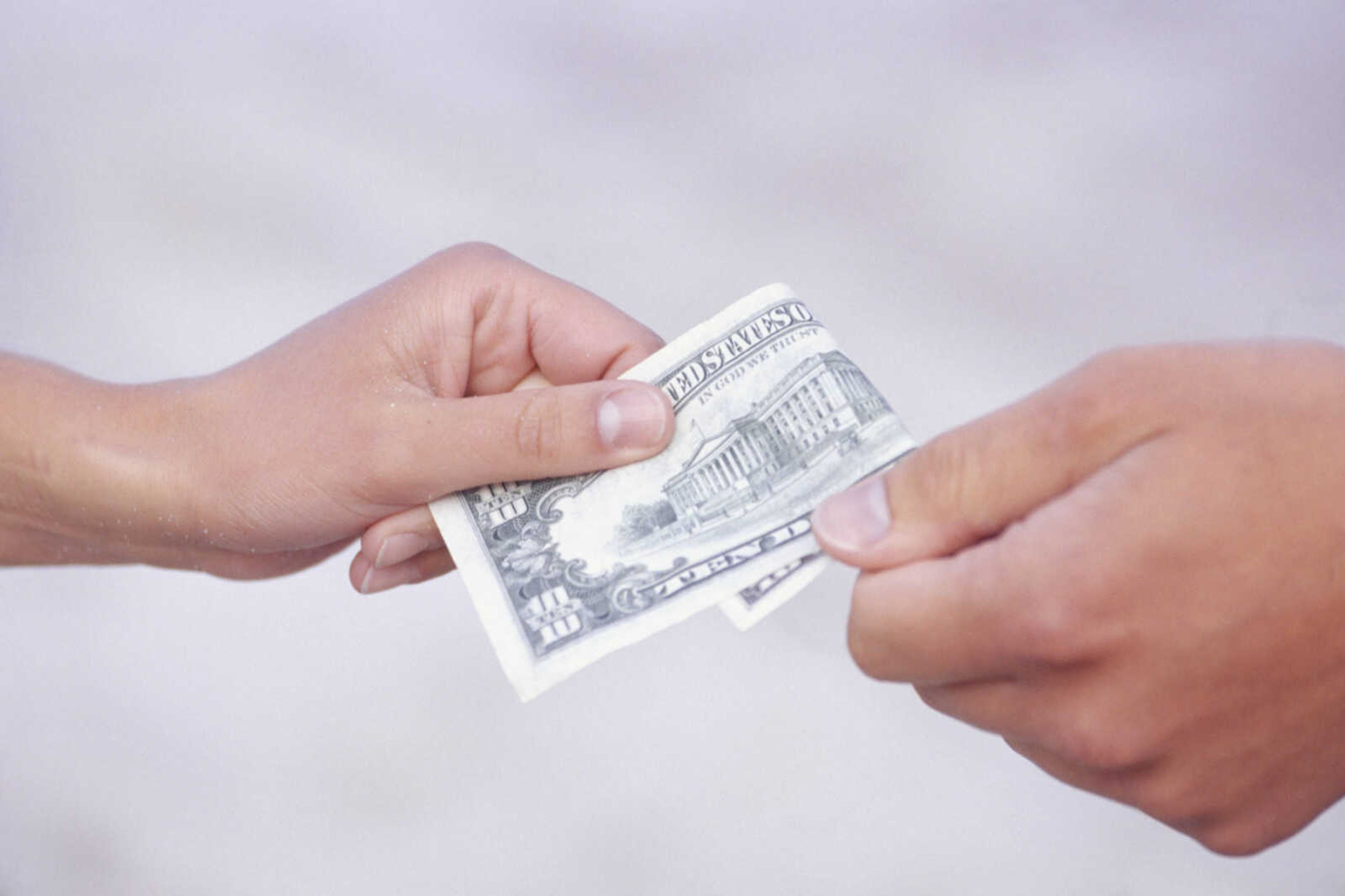County sales tax collection tops $7 million
Cape Girardeau County has surpassed $7 million in sales tax revenue for the first time, according to the most recent report issued by the county treasurer's office. It had been an uncertain year, with monthly revenue increases and decreases frequently reaching the double digits. But the county still came out on top with a revenue total of $7,036,751.10 year-to-date...
Cape Girardeau County has surpassed $7 million in sales tax revenue for the first time, according to the most recent report issued by the county treasurer's office.
It had been an uncertain year, with monthly revenue increases and decreases frequently reaching the double digits. But the county still came out on top with a revenue total of $7,036,751.10 year-to-date.
"Our highs were bigger than our lows," said county Treasurer Roger Hudson.
He expressed optimism last month the county would have a positive year, but said it hinged on December numbers. Revenue for the month equaled a little more than $654,300, nearly 8 percent higher than last December's numbers but somewhat lower than earlier years. Hudson said that amount slightly exceeded his expectations.
He described the monthly fluctuations as "inexplicable." During some months, revenue rose by more than 30 percent compared to the previous year, while other months saw drops of more than 20 percent. The numbers can be manipulated in part by the timeliness of state reimbursements or taxes being paid or by changes in consumer spending.
County sales tax numbers had been flat in recent years, leading to an increase in the property tax rate. Until 2012, the property tax rate had been set to zero for the past 30 years, thanks to more robust sales-tax numbers. A measure approved by Cape Girardeau County voters in 1979 allows the county to collect a sales tax; the measure calls for the reduction of the property tax levy by 50 percent of the sales tax collected.
When the county sets property taxes, it relies on a number of variables -- including the gross property tax revenue that would have been collected if there was no sales tax. The property tax revenue is calculated using total assessed valuation and the tax rate ceiling.
Because sales tax revenue numbers for the full year are not available when the county sets the tax levy, it relies on an estimation, multiplying the revenue collected in the first six months by two. If the actual revenue accumulated by the end of that year is lower than the estimation, the county must carry that deficit over and include it in the calculation for the next year's tax levy.
That means the number value of the sales tax reduction from the property tax is lower, driving up the property tax to make up the difference.
Hudson said that's the way it's worked out for the county in the past two years, but that won't be the case when the county makes the calculation for 2015 property taxes. The revenue collected in 2014 was higher than the estimate calculated when the county set the most recent rates in September.
The county is left with an excess of $149,242.30, meaning the sales tax reduction from the calculated property tax will be higher. The question is whether that excess will mean lower property taxes in 2015. The answer, Hudson said, is not necessarily.
If the sales tax reduction was the only variable to consider in the formula, then the property tax levy would decrease, but Hudson said it's more complicated than that.
"I don't know what's going to happen, but I know [the sales tax estimate] is going to be reduced by that amount," he said. "But I can't say it's going to reduce the property tax."
A significant increase in assessed valuation or the tax rate ceiling could make the higher reduction negligible, meaning no decrease in the property tax levy. Until all the additional numbers are available, Hudson said it's hard to guess what next year's calculation will look like.
srinehart@semissourian.com
388-3641
Pertinent address:
1 Barton Square, Jackson, Mo.
Connect with the Southeast Missourian Newsroom:
For corrections to this story or other insights for the editor, click here. To submit a letter to the editor, click here. To learn about the Southeast Missourian’s AI Policy, click here.









